ReMember-Me
News section
ReMember-Me and Data Protection
Learn more about data protection in the ReMember-Me system
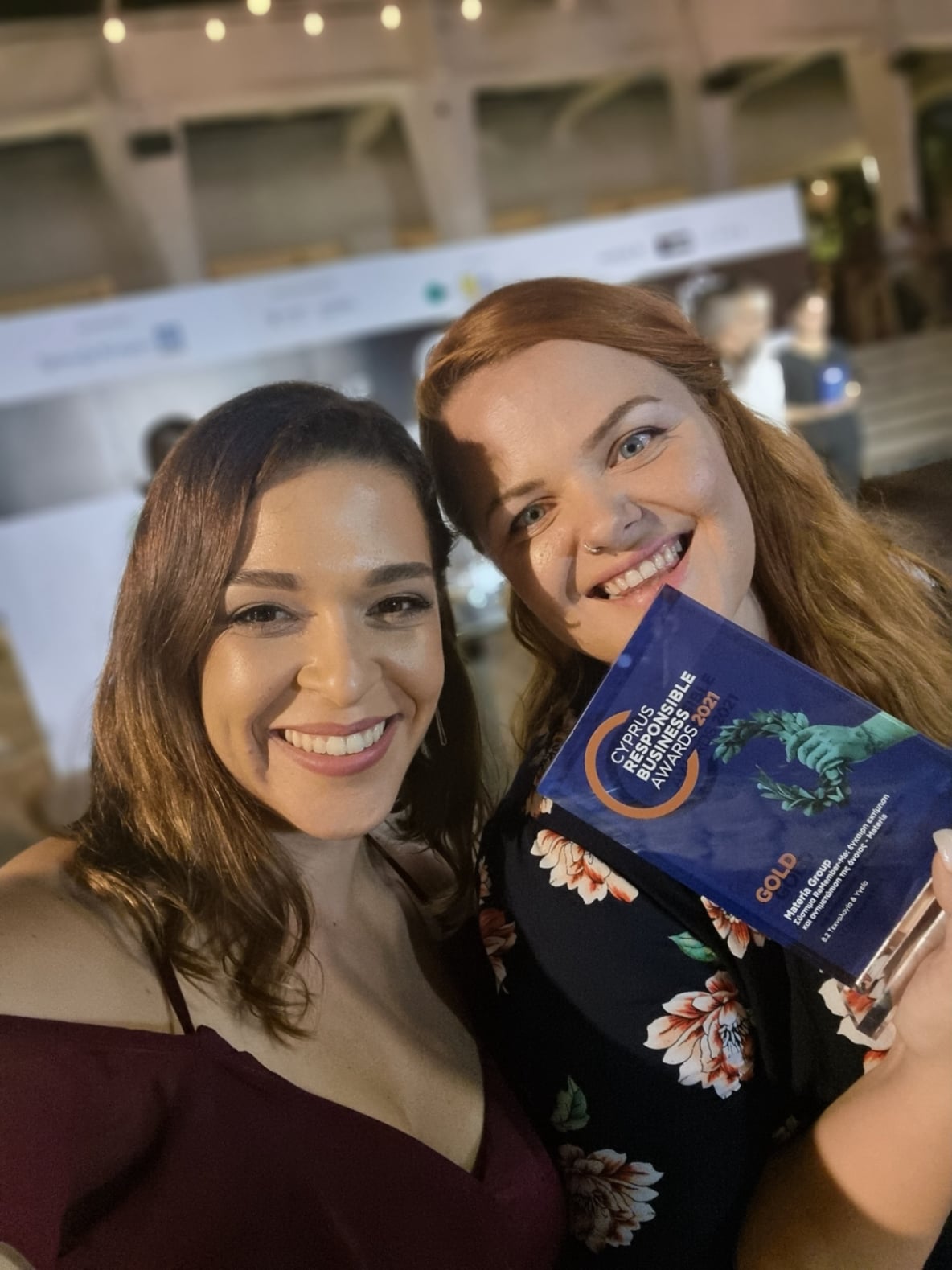
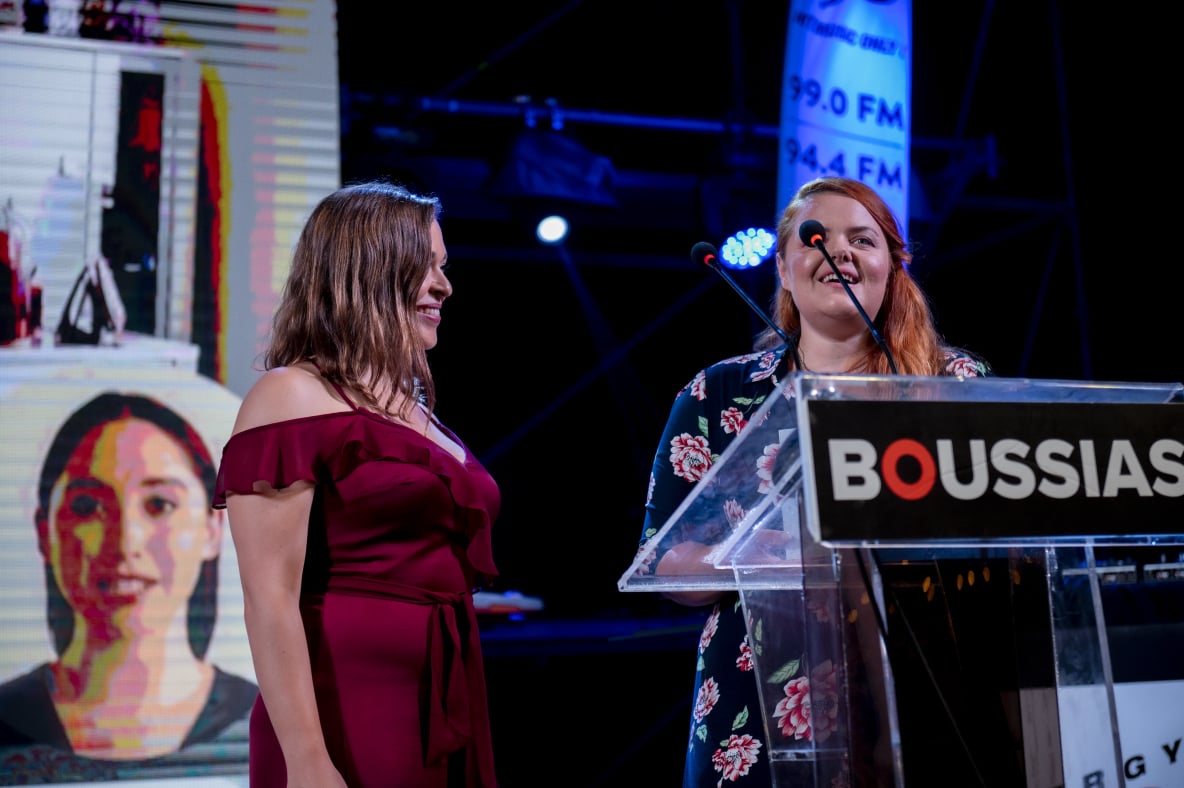
The ReMember-Me consortium takes pride and honor in having been bestowed with the Gold Award in the Health & Technology for the Common Good category during the BOUSSIAS Responsible Business Awards 2021 held in Cyprus. The ceremony took place at the picturesque NAVA seaside venue and was graced by the presence of more than 2000 attendees representing various business sectors of the country, along with members of the general public.
ReMember-Me's recognition in this significant event stands as a testament to our dedication in advancing the realm of telecare.
We extend our heartfelt gratitude for the acknowledgment we have received, which further fuels our commitment to persevering for even greater accomplishments in the days ahead.
With this recognition motivating us, we are poised to continue our pursuit of excellence in contributing to healthier aging in place.
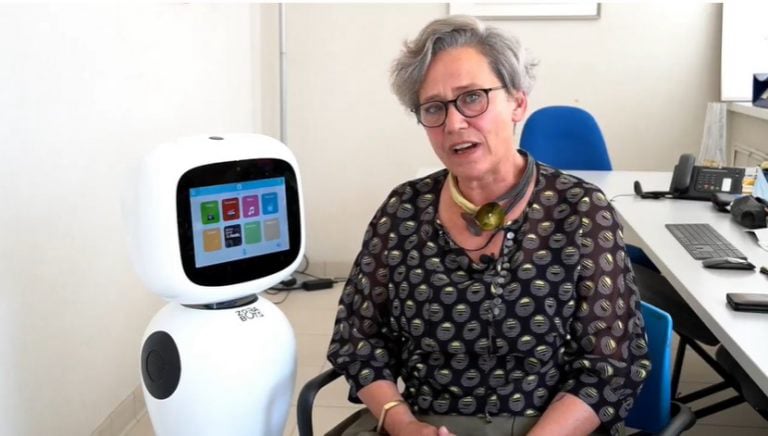
The use of social robots interacting with patients by stimulating their cognitive function and increasing emotional wellbeing and social interactions starts within two neurorehabilitation Complex Operative Units of the Fondazione Santa Lucia in Rome, in the framework of ReMember-Me Project has been reported by Dr. Federica Piras, psychologist and researcher and active partner within ReMember-Me, who explains what these social robots can do and how they will be used, the result of the AAL Programme funded project that counts on with the Santa Lucia IRCCS Foundation among its protagonists.
Have a look at the video posted by Fondazione Santa Lucia in their LinkedIn profile.
Leading the path of neurorehabilitation of cognitive functions is the neurologist who, on the basis of the evaluations and data provided by the neuropsychologist, directs the intervention of the speech therapist who delivers the correct therapies to the patient.
This highly specialized professional intervention can be assisted or completed with technologies which, once the therapy hours are over, can continue the patient’s cognitive stimulation. One of those technologies are social robots.
Thanks to the work of the Fondazione Santa Lucia team of psychologist and researcher Federica Piras, ReMemberMe AAL Project has given them the opportunity to experiment in the neurorehabilitation UOCs 3 and 6 with robots capable of interacting with the patient, proposing cognitive exercises or engaging them in meditation and relaxation exercises.
To find out more, don’t miss the interview with Dr. Piras in Corriere della Sera: https://lnkd.in/eTg4yeUH
Cognitive decline typically exhibits an insidious onset and is often overlooked, being erroneously attributed to normal aging until its impact becomes irreversibly pronounced (Smith et al., 2010; Johnson & Brown, 2015). Early recognition of such decline holds paramount importance as it facilitates timely implementation of interventions (Jones & Williams, 2018). However, achieving this goal within the confines of traditional healthcare systems necessitates multiple appointments with professionals, incurring substantial costs and proving cumbersome, especially for individuals grappling with transportation-related challenges (Adams et al., 2019; White & Lee, 2020).
Moreover, currently available assessment tools lack the requisite sensitivity to detect cognitive deterioration at more frequent intervals (Robinson et al., 2017). It is pertinent to note that routine reevaluations of cognitive decline are conventionally conducted every 3, 6 months, or annually, with the latter being the most prevalent (Garcia et al., 2016). Regrettably, the intricate developments occurring between these periodic evaluations remain largely uncharted, impeding the early detection and targeted management of cognitive disorders through precise brain training strategies and their associated consequences (Brown & Miller, 2018; Turner & Clark, 2021).
The ReMember-Me system was developed to enable a seamless and ongoing assessment of users' well-being. This evaluation not only focuses on cognition but also encompasses mood, physical activity, loneliness, and sleep, recognizing the bidirectional influence between these parameters and cognitive function. The system is accessible through a single tablet application.
Upon initializing the app, older adult users input basic socio-demographic information about themselves. They are then prompted to complete a comprehensive multi-parametric baseline assessment encompassing cognitive function across various domains, mood, psychological well-being, activity levels, sleep patterns, and social engagement. The assessment is thoughtfully designed to accommodate the challenges of aging, featuring larger fonts, short items and a clean layout. Importantly, the assessment is entirely remote, allowing users to perform it in the comfort of their homes. It is self-administered and automatically scored.
Subsequently, the ReMember-Me system employs tailored algorithms to generate a personalized user profile. This profile serves as the foundation for crafting an individualized training regimen that includes a range of activities such as serious games, exercises, dance classes, binaural beats, music, and interaction through the ReMember-Me socialization platform.
To augment the data gathered by the tool, intelligent sensors like smartwatches and bed sensors can provide additional insights into users' daily activity and sleep patterns. These real-time data inputs, combined with the users' performance on various activities, empower the system to continuously recalibrate and stay attuned to their evolving status. This ensures that the personalized training regimen remains current, precise, and tailored to each individual's profile, allowing for a dynamic and continuously recalibrated approach.
Presently, our system is undergoing refinements, including the integration of additional exercises, and the enhancement of our algorithms. These refinements are designed to increase the intelligence of the system, taking into account users' preferences to create a more engaging training experience.
References:
Adams, J., Smith, R., & Johnson, M. (2019). Challenges in Cognitive Decline Assessment within Traditional Healthcare Systems. Journal of Aging and Cognition, 10(3), 145-162.
Brown, A., & Miller, L. (2018). Bridging the Gap: Towards More Frequent Cognitive Assessments. Neurology Review, 25(4), 198-205.
Garcia, K., White, P., & Lee, S. (2016). Cognitive Evaluation Practices in Clinical Settings. Journal of Neuropsychological Assessment, 14(2), 78-94.
Johnson, E., & Brown, B. (2015). Misattributions of Cognitive Decline in Aging Adults. Psychology and Aging, 20(3), 405-412.
Jones, W., & Williams, C. (2018). Early Intervention Strategies for Cognitive Decline. Journal of Geriatric Psychology, 5(1), 30-42.
Robinson, H., et al. (2017). Assessment Tools for Early Detection of Cognitive Decline. Alzheimer's and Dementia, 13(6), 770-779.
Smith, D., et al. (2010). Recognizing Early Signs of Cognitive Decline. Journal of Neuroscience Nursing, 42(3), 120-126.
Turner, R., & Clark, J. (2021). Managing Cognitive Decline Implications through Brain Training. Cognitive Enhancement Quarterly, 8(2), 150-165.
White, R., & Lee, A. (2020). Transportation Challenges and Access to Healthcare Services. Journal of Health Disparities Research and Practice, 13(5), 98-112.
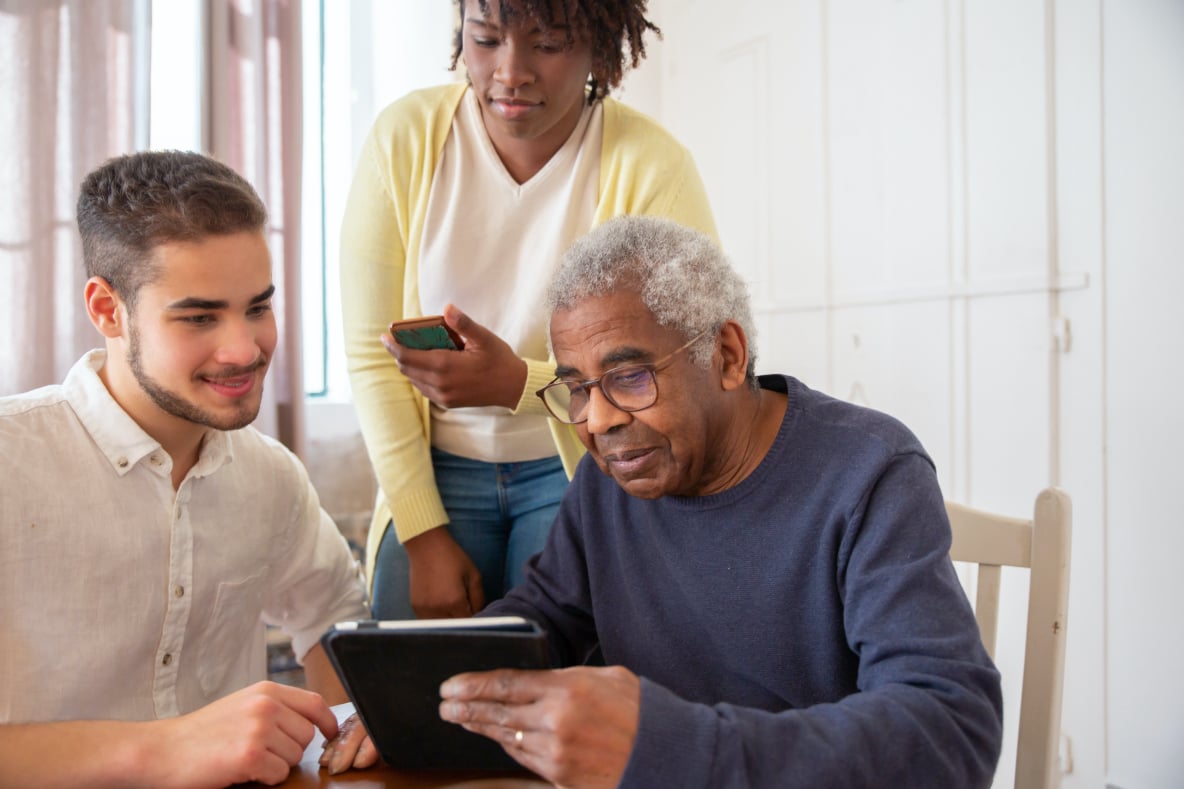
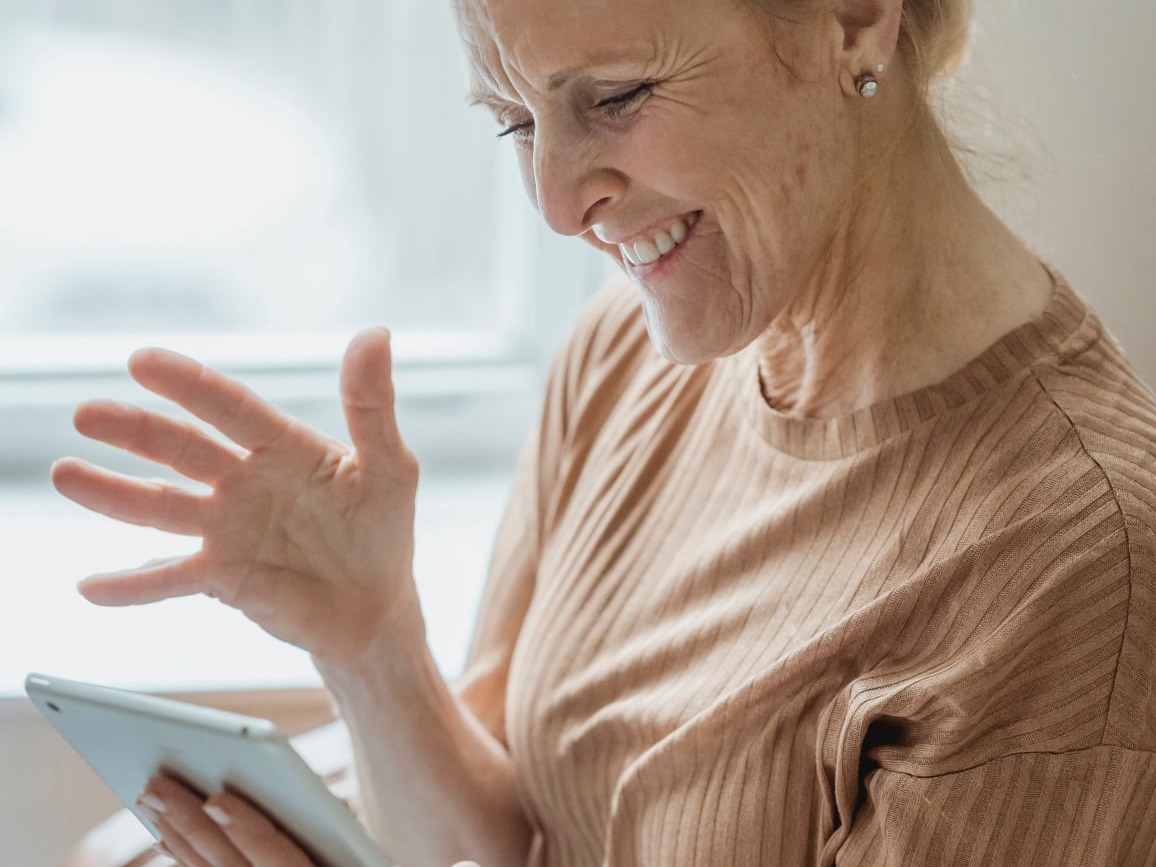
Dedicated to grandma Fani and to all of you who are tired of hearing the same stories from your grandmother
My Greek grandmother, a powerful, very generous woman, who has traveled all over the world, now brought us bread and buns every morning, did not go anywhere other than from the house to the market and from the market back to home and she could not understand why we, her grandchildren, were all day “tsuk-tsuk” (her imitating the sound of the buttons), playing with those screens (meaning our mobile phones).
My grandmother, for many, many years, talked to us about the Stavros (an area in northern Greece) and we were all bored when the story of the Stavros began again and again. From the story, we remembered only two words “the Stavros” and “the guerrillas”, and nothing more.
Do you have such a grandmother in the family? Or a grandpa?…
But let me come back, because it is worth it, and tell you about the story of the Stavros. The story of the Stavros, takes place around 1948-1949, during the Greek Civil War. My grandmother was the third child, in a family of six with 4 children, and was then around 14 years old. They lived meagerly while hunger was a daily part of their lives. She describes to me that they collected dry grass and leaves from the side of the road, sawdust, tree bark and ground it to make something, almost edible, like bread. She shows me black-and-white, very old photos of her little brother, thin and hungry, and describes how she used to catch him looking for food and picking moldy bread crumbs from the empty bread case with his little finger. She describes to me the only clothing item she loved so much because she had bought it herself. It was a knitted cardigan, which she only wore on exceptional occasions.
The story of the Stavros takes place on the one day that was etched in her memory more than any other during the civil war. That day, the guerrillas knocked on the wooden door of their family house. Upon entering, they found only her and her little brother (6-7 years old) and asked her to follow them. She was old enough while her brother was still too young to endure the long journey in the mountains. After that, they started to climb the mountain and my grandmother followed them, wearing her favorite knitted cardigan over a thin dress. Suddenly, a few meters away, she heard her little brother behind her shouting her name. “His words”, she told me, “are something I will never forget”.
“What do you want;” I asked him. “I want you to give me your cardigan,” he answered. It was a cold winter morning and he was dressed lightly with open slippers on his feet, she describes.
“But I will go up to the mountains. It’s very cold. I will freeze.”, she told him.
“Yes, but either way you are going to die with them.” he said to her with tears in his eyes “Give it to me because I am cold.”
My grandmother gave him her cardigan because she felt sorry for him and continued the long walk to the mountains, in a worn, thin dress, following the guerrillas to the area of Stavros (approx. 16 km), until the night came. My grandmother describes that the night was difficult for her. However, under the pretext that she needed to go to the toilet, she managed to escape in the night and by running and stumbling upon mountain rocks, she managed to find her way back. This is the story of the Stavros (sparing some of the details). My grandmother’s eyes fill with tears when she tells this story. But, isn’t it very moving?
At one point, over the years, it came up to me that my grandmother was telling the same stories again and again but still, I never sat down to listen to them. I felt bad. So, one day I told her I would dedicate as much time as she needed to listen to everything she remembered and write it all down. Her eyes lit up. She made coffee and started telling me about her memories. And those afternoons were great. I remember them and she still remembers them. Afternoons, filled with many handwritten pages, with many historical confusions and repetitions but also truths that I would never have the chance to hear again. They would all get lost along with her.
From the story of Stavros, Koulouki and all the other stories that I ignored for years but my grandmother wanted to share so much, and the similar stories of other older adults across Europe, we formed the idea of the ReMember-Me project and the ReMember-My Story platform.
The ReMember-Me project AAL-2019-6-188-CP project, funded by the EC and the AAL programme focuses on building a brain training system at home and contains many different activities and games. You can read more about the project and follow our news here: Website and here: Facebook
However, the challenge for us was that the ReMember-Me system had to have something different to succeed. It had to be tailor-made to what older adults needed. Thus, the system was designed to include the ReMember-My Story social platform that connects people who have knowledge on different topics and want to share their experiences with reputable community members who want to learn about them. Now, my grandmother will be able to tell her stories to all the people who are interested in listening to them, recording them and preserving them as part of our history.
This is my experience. The evenings with my grandmother not only taught me things about the history of my country but also influenced me years later in my work. Our grandparents were born almost a century ago. Aging makes you poorer in muscle strength and learning speed. Thus, it may be hard for them to run with their grandchildren, learn how to use computers and video games or social networks. Most of them first saw a computer as adults and find it hard to learn how to use technology now. After all, their stories show that they are already very tired in their lives. Richer or poorer, they all experienced difficulties that often, we cannot even imagine. Now they want to live calmly and peacefully. But it is this difference with the younger ones that creates a generation gap and may, at times, make them sound outdated and boring.
But aging makes you richer too. In knowledge, free time and wisdom. Our grandparents are great. As other custodians of our history, they hold testimonies and experiences that are worth learning, as long as, we put them in our family discussions and dedicate time, patience and respect to them. And if we have these three things when we communicate with them, we will be surprised by the fact that not only do they want to but also, can learn how to use computers, social networks and mobile phones. And so, we can share even more things with them.
First published in gernaoallios.gr
Image sources: Teona Swift & Kampus Production, Pexels
Wish to learn more about children during the Greek Civil War?
Read here: http://www.encephalos.gr/pdf/50-3-02e.pdf
And here: https://www.jstor.org/stable/24919715
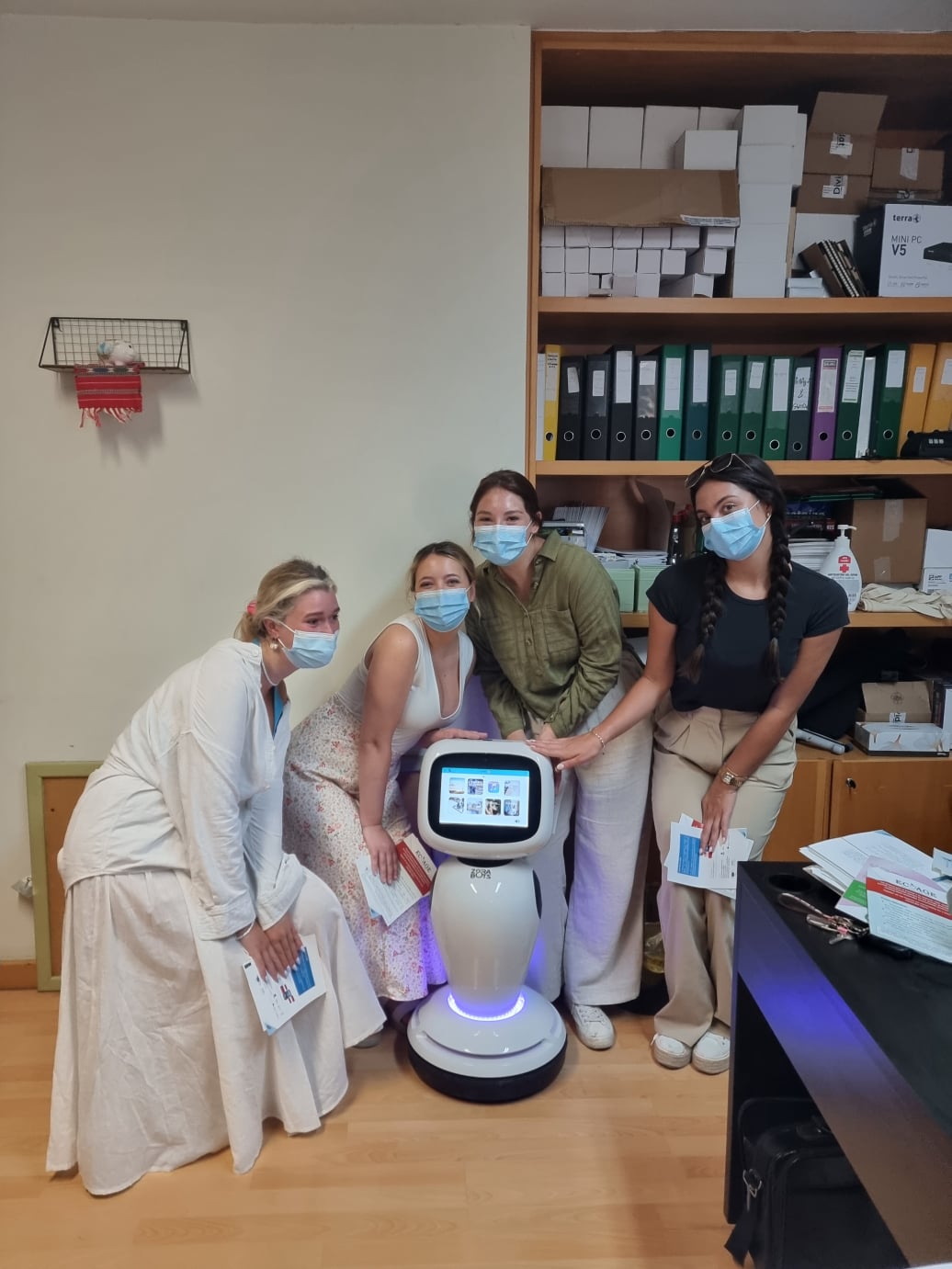
In July 2023, a group of students specializing in Nutritionist disciplines from the United States embarked on a significant learning experience by visiting Materia Group in Cyprus. This visit was part of their traineeship, aimed at gaining valuable insights into the realm of Applied Innovations. During their time at Materia Group, the students met James, our social robot, and learned about the ReMember-Me project; which has a transformative vision for revolutionizing telecare within the cognitive healthcare sector, particularly targeted at enhancing the well-being of older adults.
Their exposure to the ReMember-Me project and its innovative approach sparked a contemplation about the diverse approaches to healthcare on both sides of the Atlantic.
Cognitive healthcare approaches in the United States and Europe exhibit notable variations stemming from diverse healthcare systems, cultural factors, and resource allocation. In the United States, cognitive healthcare often operates within a predominantly privatized system, where access to specialized services can be contingent on factors such as insurance coverage and financial means. This can result in disparities in access to cognitive assessments, treatments, and interventions, particularly for marginalized populations.
Conversely, many European countries offer more comprehensive and accessible healthcare systems, often with a stronger emphasis on preventive care. Cognitive healthcare in Europe tends to prioritize early intervention and holistic approaches, taking into account both medical and psychosocial aspects. This approach stems from a societal commitment to ensuring equitable healthcare access and comprehensive social support systems.
Advances in telecare have been transformative on both sides of the Atlantic, playing a significant role in bridging gaps in cognitive healthcare. In the United States, telecare has enabled remote cognitive assessments, virtual consultations with specialists, and the dissemination of cognitive training programs to broader populations. However, challenges related to the digital divide and varying levels of tech-savviness can hinder the full realization of these advancements.
In Europe, the integration of telecare into cognitive healthcare has been facilitated by the strong emphasis on public health and well-established social safety nets. Telecare platforms have enabled personalized cognitive monitoring, virtual therapy sessions, and remote medication management, fostering greater accessibility especially in remote or underserved areas. European countries have often been quicker to adopt and implement telecare solutions due to the structural cohesion of their healthcare systems.
In recent years, the advances in telecare have been remarkable. Smart devices, wearable sensors, and AI-driven applications have revolutionized cognitive healthcare, enhancing early detection, individualized interventions, and remote monitoring. These technologies have particularly empowered older adults to engage in cognitive exercises, receive real-time feedback, and maintain their mental well-being from the comfort of their homes.
While both the United States and Europe have made strides in leveraging telecare for cognitive health, challenges remain. Data security, regulatory frameworks, and ensuring equitable access for all segments of society are ongoing concerns. Nonetheless, the trajectory of telecare innovations continues to reshape cognitive healthcare, offering the promise of improved accessibility, earlier interventions, and enhanced quality of life for individuals across continents.
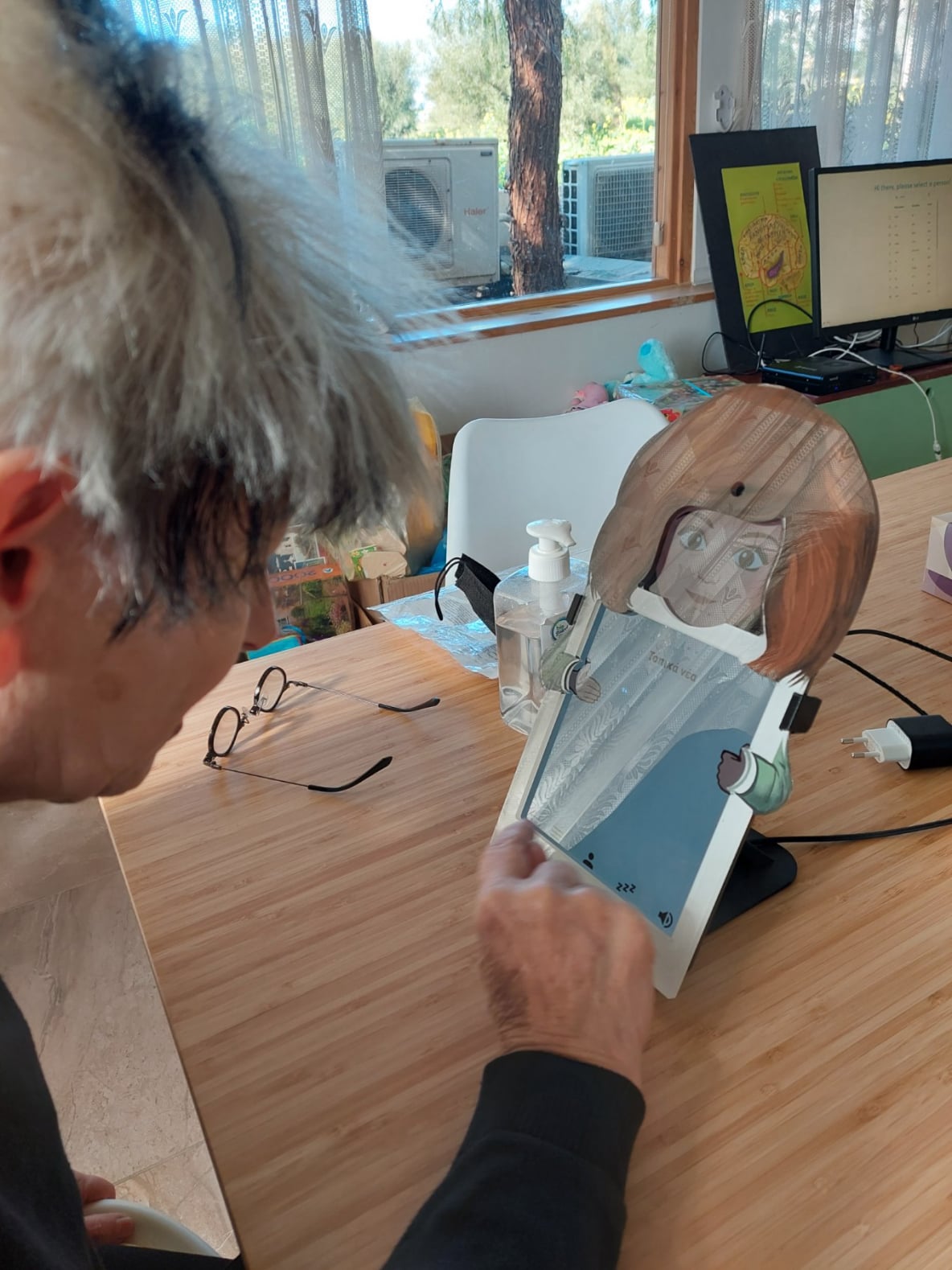
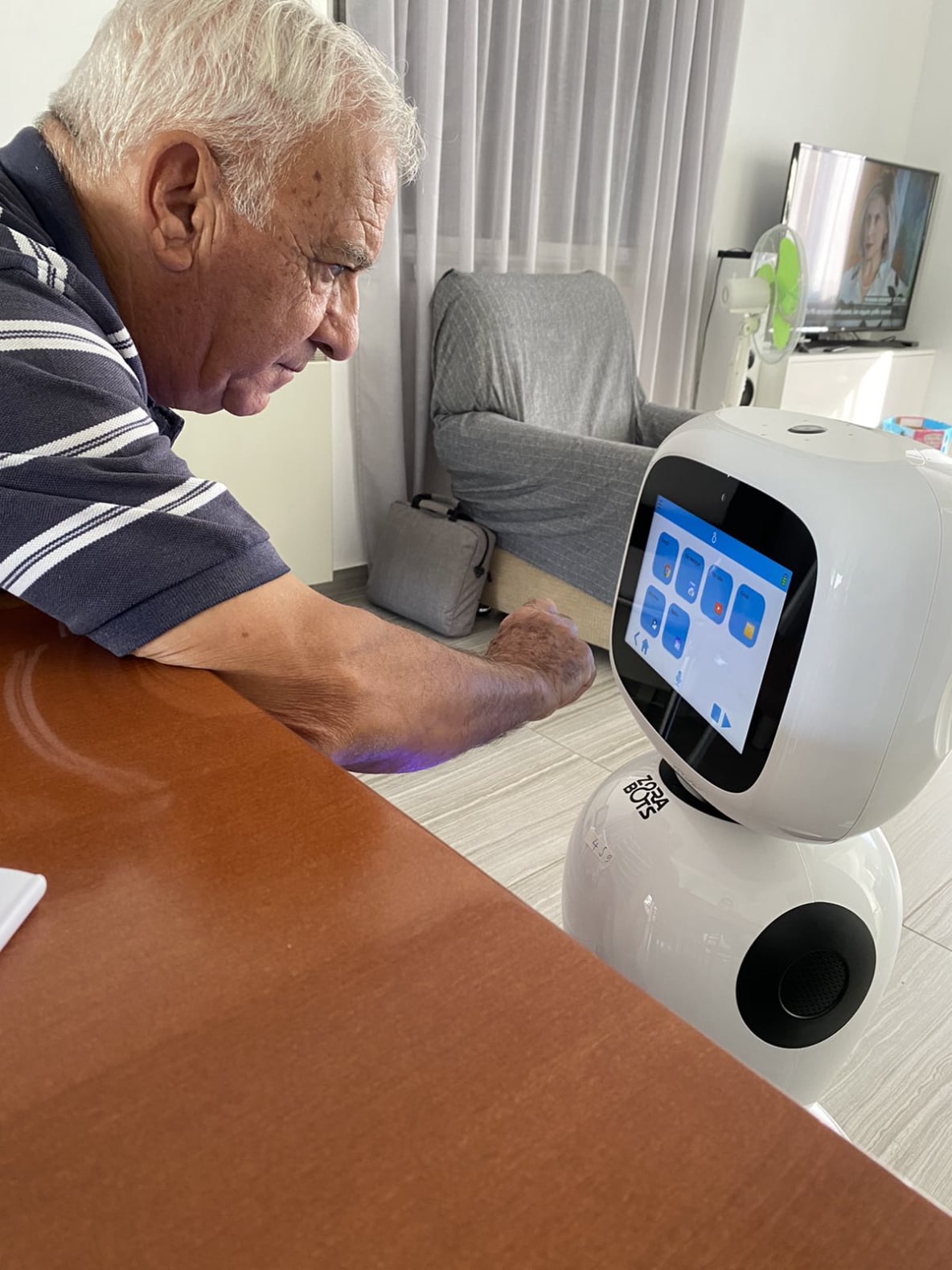
In the innovative landscape of telecare, the ReMember-Me consortium embarked on a journey to harness the potential of social robots in enhancing the lives of older adults. Amidst this pursuit, two distinct robotic companions took center stage—James and Liz. This tale sheds light on their individual merits and the insights garnered from the trials.
**James: A Stalwart with Challenges**
Selected from the ZORA array of products, James, the one-meter-tall social robot, with an imposing Android tablet screen adorning its head, entered the ReMember-Me trials. The initial interactions between James and the users were enchanting. Yet, beneath the charm lay reservations and challenges. With a weight of approximately 8 kgs, James faced difficulty traversing carpets and moving independently within households, inadvertently becoming a tripping hazard. Concerns emerged about power consumption, fueled by the robot's size, and its substantial build proved less than ideal for older adults residing in compact apartments. The absence of a human-like face led some to perceive James as cold, further accentuating the need for a more empathetic design.
**Liz: A likely alternative**
Enter Liz—a diminutive robot powered by the Android OS and fostered through collaboration with ConnectedCare, a Netherlands-based company. Unlike James, Liz's stature is smaller, rendering her immobile and voiceless. However, her functionality seamlessly integrates with the ReMember-Me system. Preliminary tests uncovered intriguing insights. Older participants, particularly those who had engaged with both James and Liz, demonstrated a greater affinity for Liz's unassuming presence. Her portability, compact size, user-friendly design, and engaging interface made her an appealing companion for everyday usage.
**Navigating Towards the Future**
The ReMember-Me trials illuminated the complex dynamics of human-robot interaction, offering valuable insights into the preferences of older adults when it comes to the use of social robots. Liz's success, especially in comparison to James, underscores the significance of practicality, convenience, and design in this evolving landscape. As the trials continue, the consortium is poised to refine the ReMember-Me system's specifications, ensuring that social robots emerge as effective and engaging motivators, seamlessly integrated into the lives of older adults. This journey is a testament to the dynamism of innovation and the resilience to adapt and shape technologies that truly enhance the aging experience. Further tests and exploration await, steering us toward an era where social robots can be true companions in the realm of telecare.
In the rapidly advancing landscape of digital healthcare solutions, the ReMember-Me system stands as a beacon of commitment to user privacy, ethics, and data protection. This revolutionary system captures user performance data, a sensitive and personal category of information, necessitating robust measures to safeguard the privacy and rights of every individual. In the pursuit of delivering cognitive well-being, ReMember-Me places the utmost importance on ensuring data security and ethical transparency.
To guarantee the highest level of data protection, ReMember-Me has meticulously implemented comprehensive protocols. The foundation of this approach lies in the transparent communication of practices to users. Privacy policies and information letters serve as tools to inform users about how their data is collected, processed, and secured within the system.
Moreover, ReMember-Me adheres to rigorous ethical guidelines by obtaining full study approval from relevant bodies, exemplified by the Cyprus Bioethics Committee and the Santa Lucia Ethics Committee. This demonstrates a commitment to aligning its operations with established ethical standards, ensuring the welfare of participants.
Informed consent stands as a cornerstone of ethical data collection. ReMember-Me diligently employs detailed and explicit informed consent forms that users sign. This ensures users are well-informed about every procedure, empowering them to make conscious choices about their participation. This commitment extends to the flexibility of withdrawal, with participants empowered to exit the study at any time without consequences or the obligation to provide reasons.
ReMember-Me's dedication to data protection is further underscored by its thorough Data Protection Impact Assessment (DPIA), conducted at regular intervals to ensure adherence to evolving regulations and best practices. The system benefits from the guidance of external, independent ethics advisors and a multidisciplinary Advisory Board, bringing diverse perspectives to uphold ethical integrity.
The ReMember-Me system employs data protection secure standards, assuring that user data is maintained in a secure environment. The commitment to transparency and accountability extends to the appointment of Data Protection Officers (DPOs) for the consortium and individual partners, as well as the availability of complaint officers to address any concerns.
For a deeper understanding of user rights within the ReMember-Me system, a comprehensive video has been prepared and shared (above), detailing the ethical safeguards in place and elucidating the measures taken to uphold user privacy.
ReMember-Me was featured during the "Under the Stars" charity event held on the 30th of May, 2023 in the Garden Day & Night in Nicosia, Cyprus by the Nicosia Municipal Multifunctional center.
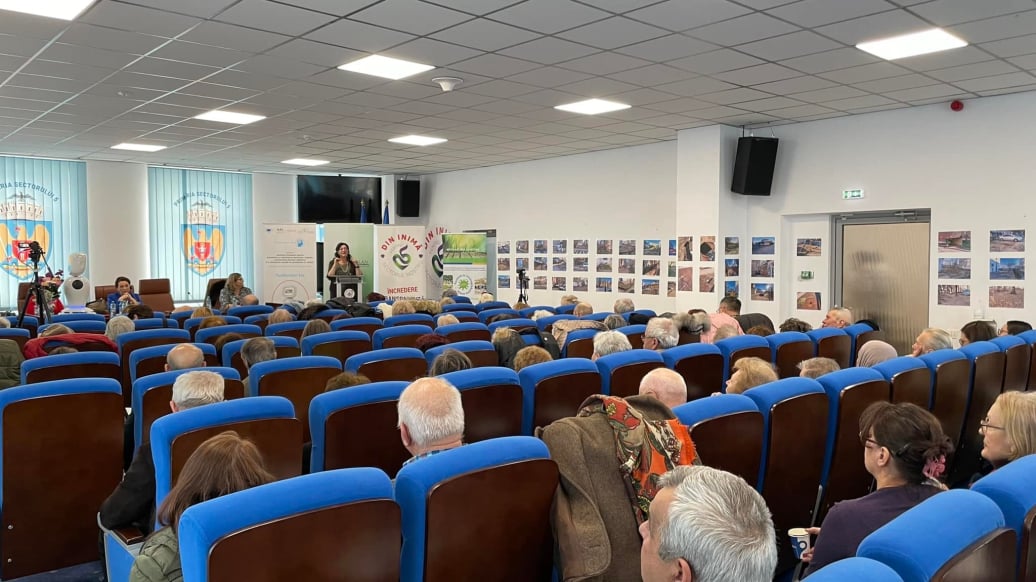
A meeting with 100 seniors from different sectors in Bucharest was organised by the Ana Aslan International Foundation (AAIF) on March 15th.
Enthusiastic seniors, experienced volunteers and representatives of the foundation gathered in the big Council Hall of the headquarters of the City Hall of Sector 5. Nellie Gospodinova, a researcher and a project coordinator at AAIF, presented the ReMember-Me project to seniors. Her presentation began with a definition of cognitive decline and explanation about Mild Cognitive Impairment. It was pointed out that early detection of cognitive decline is crucial because it gives a person a chance for improvement or maintenance of their cognitive function through rehabilitation activities and counteractive actions.
The ReMember-Me project aims to develop a simple, yet effective tool to address cognitive decline in real-life settings. The ReMember-Me system is a smart assistant which aims to prevent and detect cognitive decline, promote cognitive function and social inclusion among older adults. The system offers high levels of integration between healthcare professionals, caregivers, family members and the community. It integrates a tablet application, a social robot, and a smartwatch.
The robot was presented to seniors who looked at it with great interest and curiosity. Nellie Gospodinova shared news about the current developments in the second prototype of ReMember-Me and its pilot testing which will begin in Bucharest in April this year. After the presentation, many Romanian seniors expressed their wish to take part in the second pilot testing as volunteers. Based on the partnership between the Ana Aslan International Foundation and DGASPC Sector 5, such meetings will continue to be organized, and the information will be extended to news and solutions in the medical field, on different specializations, depending on the interest of seniors.
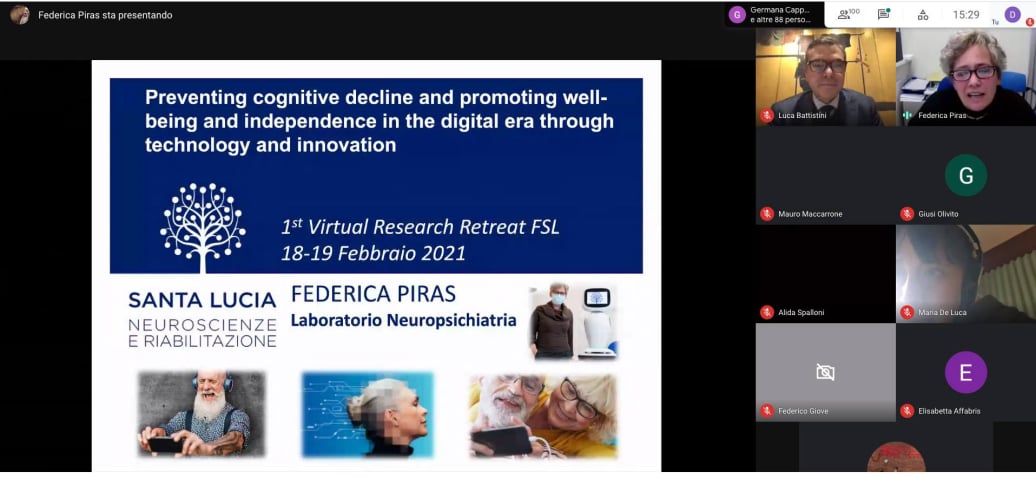
The ReMember-Me project was presented by research psychologist Federica Piras during a virtual meeting held at project partner Fondazione Santa Lucia.
The event (now in its fourth edition, the first virtual owing to COVID-19 policies) gives researchers from 60 laboratories the opportunity to share results from ongoing projects, and to suggest new directions in actual research.
The event (February 18-19, 2020) was virtually attended by more than 100 researchers who had the chance, during a talk on “New technologies to prevent cognitive decline and promote well-being and independence in the elderlies” to appreciate the innovation potential of the ReMember-Me system and the many opportunities it will give users for ameliorating their health, cognitive functioning and social inclusion.
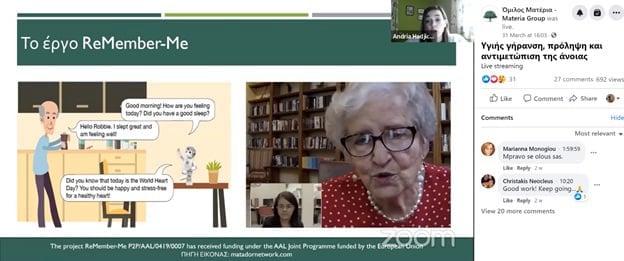
On the 31st of March 2021, Materia Group in collaboration with Noesis Cognitive Center & Tech Solutions and Aktios Elderly Care Unit, organized an online webinar titled ‘’Healthy Aging, Preventing and Coping with Dementia’’.
During the session ‘’Technological Applications for Older Adults’’, Materia Group presented the ReMember – Me Project and James Robot.
More than 600 people from Cyprus, Greece and other European countries attended the seminar through Zoom, Facebook live and Youtube.
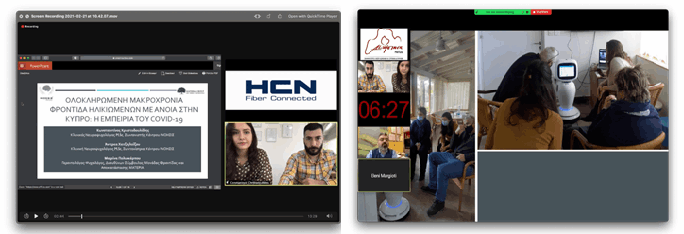
Alzheimer Hellas organized an online seminar for the 12th Panhellenic conference of Alzheimer’s Disease and the 4th Mediterranean conference on neurodegenerative diseases PICAD & MeCoND between the 18th and 21st of February 2021. During the seminar, healthcare professionals from Greece, Cyprus and abroad, participated and presented their scientific publications, mostly in Greek language.
Materia Group and Noesis Cognitive Center was represented by Andrea Hadjiloizou and Constantinos Christodoulides, Clinical Neuropsychologists and center’s coordinators. The topic of their presentation was “Holistic long-term care for people living with dementia in Cyprus, amid COVID-19”. The presentation was attended by healthcare professionals but also from family caregivers and the general public that was interested in the topic. The attendees had the opportunity to ask the healthcare professionals questions about dementia, the difficulties during the Covid-19 pandemic and discuss new projects and solutions that are under development or already implemented in order to overcome the struggles of the pandemic. The public had the opportunity to meet James and learn about the important work developed by the EU funded project ReMember-Me (funded by the AAL programme), in order to prevent and detect cognitive decline, promote cognitive function and social inclusion among older adults.
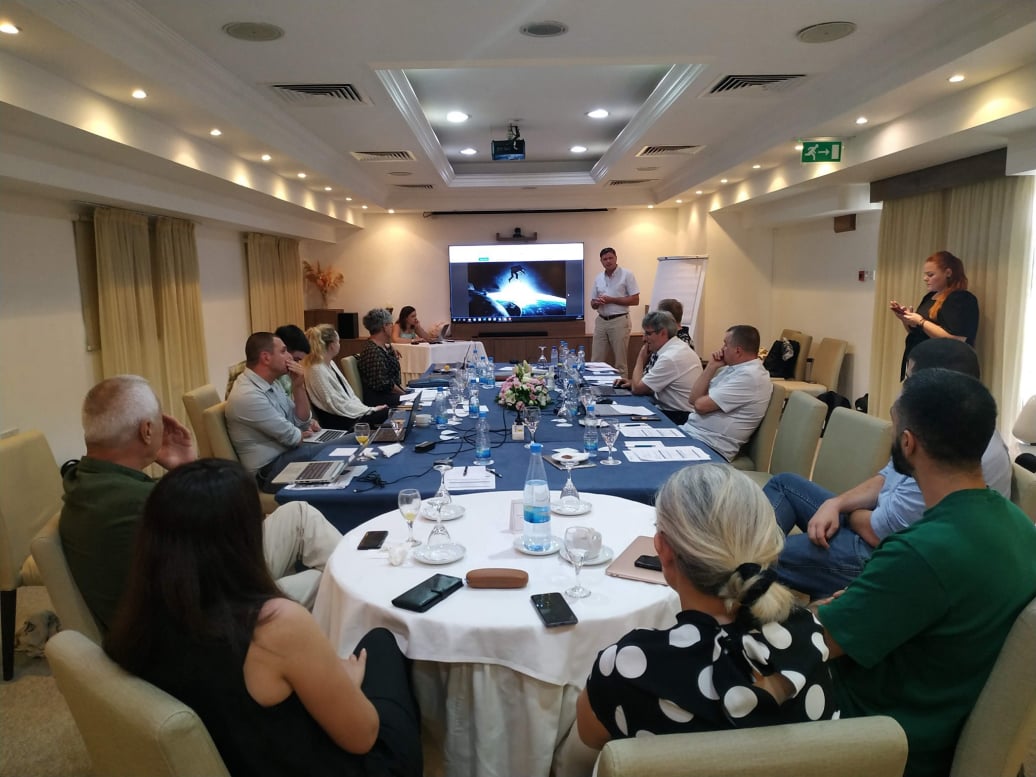
On Tuesday 28th of June, ReMember-Me project organized its Second Open Workshop, about innovative ICT solutions for brain training, with a special focus on the Cypriot system and prevailing healthcare system and ICT market.
We had the great pleasure and honor to have with us Constantinos Christodoulides, MAT Noesis Cognitive Center & Tech Solutions, activities co-coordinator, Alexia Karaiskaki, vice president of the Alzheimer Association Larnaca, Skevi Kiriakou, social worker at the Alzheimer Association Larnaca, Dr.Marios Kyriazis, biomedical gerontologist, Stalo Zarouna, head of psychosocial department at Thalpori Unit, and Christos Xiourouppas, clinical psychologist at the Alzheimer Association Larnaca.
Participants confirmed it is the right time to promote not only in Cyprus, but in all Europe, a common elderly care approach and protocol with a special focus on dementia, from healthcare, caregivers’ and patients’ perspective, in which ReMember-Me system could nicely fit in. As Mrs Zarouna stated, early detection of dementia is key not only for patients but also for caregivers to promote early interventions and prevention of the progression of the disease as much as possible.
In Cyprus, there is no holistic approach for elder care and, as Mrs Karaiskaki highlighted, there are not sufficient services for people with dementia, with them being also stigmatized in the social realm. Dementia cases are usually not revealed to the social environment in fear of stigma, and families are reluctant to accept them. In this context, people with dementia are kept in home settings limiting their opportunities for meaningful stimulation and activities. Nevertheless, psychosocial interventions and support for family members towards acceptance of the issue and its implications, as well as the availability of tools assisting early diagnosis and therapeutic interventions could be of great value. An example, would be the incorporation of cognitive screening tools in a system, as healthcare systems normally do for other diseases (e.g. breast cancer).
Mrs Karaiskaki also anticipated that the World Health Organization, together with countries worldwide, are trying to promote dementia as a health priority, as discussed during the 35th Global Conference of Alzheimer’s Disease International last June in London.
Participants stated that there is also a need for accurate statistics all over Europe about cognitive decline to develop realistic strategies at European and national level. If we know the prevalence, we will be able to act.
What is more, Dr Kyriazis highlighted that within the Cypriot health system, similarly to what happens in most of European countries, General Practitioners are not sufficiently trained towards the detection and treatment of dementia. There is a need therefore to educate them so that they know when to proceed to further screening and appropriate interventions or referrals. Constantinos Christodoulides commented also about the great need to incorporate more geriatricians in the system. In Cyprus, for example, there are only two geriatricians available.
Sotiria Moza, head of Applied R&D Dpt at Materia Group, asked the participants regarding the existing tools for early detection of cognitive decline, in order to know if they do consider that there is a real need. All participants confirmed there is still a great niche market for this kind of tools. Marina Polycarpou, Managing Director at Materia Group, also stated that though there are many tools for cognitive decline detection in the market, most patients tend to cover their symptoms which further hinders the early detection of dementia. Therefore, holistic tools like the ReMember-Me system could be very helpful considering that they holistically assess different psychosocial and cognitive aspects aspects, which is necessary for early detection. Furthermore, dementia in early stages is very tricky to spot.
Finally, Mrs Zarouna also suggested, the need to educate nurses and health personnel at hospitals on how to deal with people with dementia. We are lacking of protocols and training of healthcare professionals, especially considering the management of challenging dementia symptoms like wandering, aggression and repetitive behaviors.
After the open debate with experts, two innovative ICT solutions for brain training in older adults, results of AAL funded projects, were also presented: Prof. Doc. Ionut Anghel, Professor of Computer Science, Technical University of Cluj-Napoca, first presented engAGE Project, an innovative system integrating social robots, IoT-based monitoring and machine learning techniques to combat and slow down cognitive decline progression. Secondly, Ronny Broekx project manager of Tele-Health Systems, presented Sense Garden Project, a virtual garden for persons with dementia to be used to connect through emotions by triggering the five senses of the person with dementia.
Last but not least, Mrs Moza presented the ReMember-Me system and James Robot, co-funded by the European Union under the AAL Programme (Protocol No aal-2019-6-188-CP), aiming to create a digitilized tool to detect and prevent cognitive decline early on and comprised of a tablet, a social robot and smart sensors for remote assessment and intervention at the older adult’s home. An interactive session followed during which participants took photos of the system and engaged in a Q&A session with a consortium providing helpful comments and feedback. Dissemination of workshop material through social media networks raised high levels of interest among family members and caregivers in Cyprus, who contacted consortium members to try the system and be enrolled in the upcoming trials.
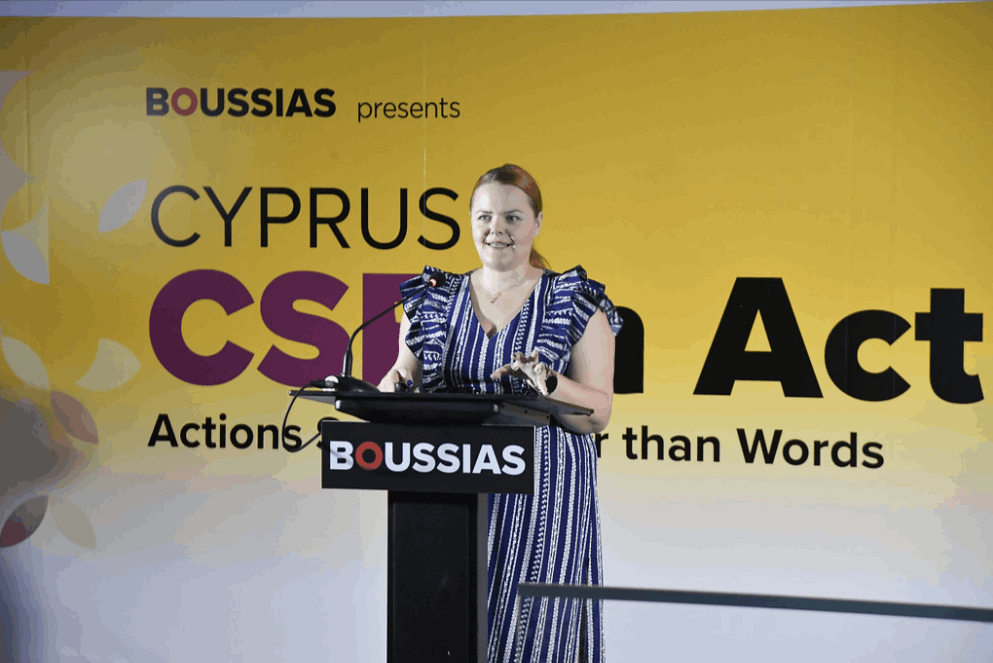
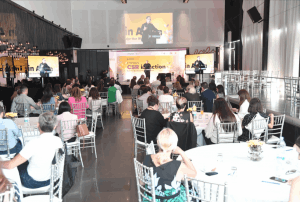
Materia Group participated in the CSR in Action 2022 on the 29th of September 2022. The event took place physically and attracted over 150 stakeholders from the Cypriot landscape including key market players and press. The aim of the event was to highlight the development that has taken place in the CSR landscape in Cyprus but also to inspire others to contribute to the social good. Companies from across the spectrum of the market presented actions they implemented in the last year, an overview of their overall journey in CSR over the last years and future plans.
Sotiria Moza, Head project manager in Materia Group, presented the ReMember-Me system during her speech focused on “Supporting healthy and active ageing through smart ICT and intergenerational solidarity”.
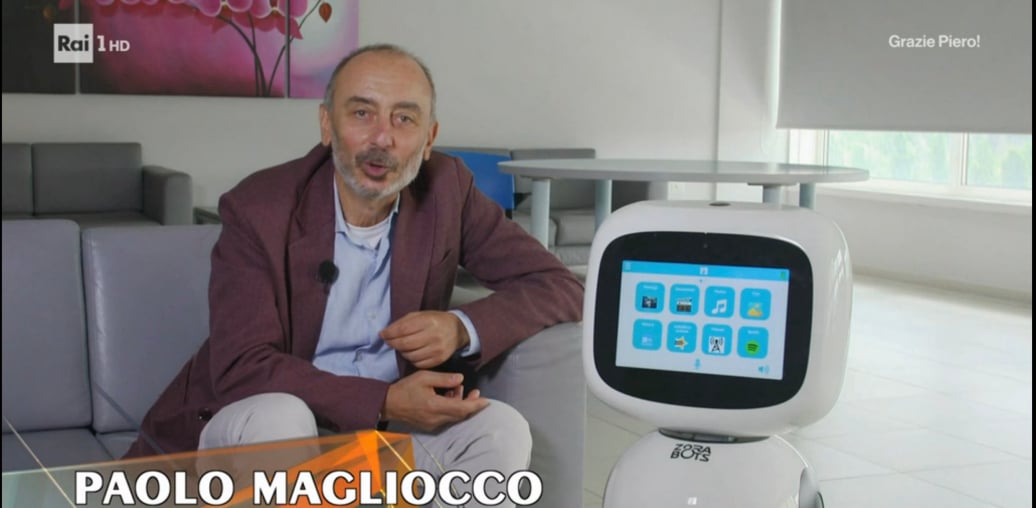
In the episode broadcasted on August the 24th 2022 -the last hosted by the recently deceased journalist Piero Angela who brought science into Italian homes for 50 years-, the ReMember-Me project was presented as an efficacious instrument for keeping the elderlies cognitively stimulated.
Born as a 40 minutes scientific program known as “Quark”, the TV show created by Angela became the 2 hours long show “Superquark”, which is the most popular and respected scientific outreach TV program in Italy. Since it introduces the general public to all sorts of topics explaining scientific facts with an easy to understand language, has usually a great audience.
The episode presenting the ReMember-Me project (among other interventions for stimulating cognition in elderlies) was seen by 1.612.000 people, thus reaching 12.5% of the Italian audience watching TV during prime time.
The monitoring and prompting features of the social robot James, -part of the system architecture supporting the individual in completing daily tasks, encouraging and following up the user on several activities, also offering interactive games, and a social platform to meet people- were specifically presented. In the real footage, shot @FondazioneSantaLucia in Rome, one of the users presently participating in the field trials to test the system efficacy in promoting cognitive performance, physically interacted with James, who surveyed her on personal well-being and proposed serious games and music. The exert on stimulating activities for the elderlies can be seen here.
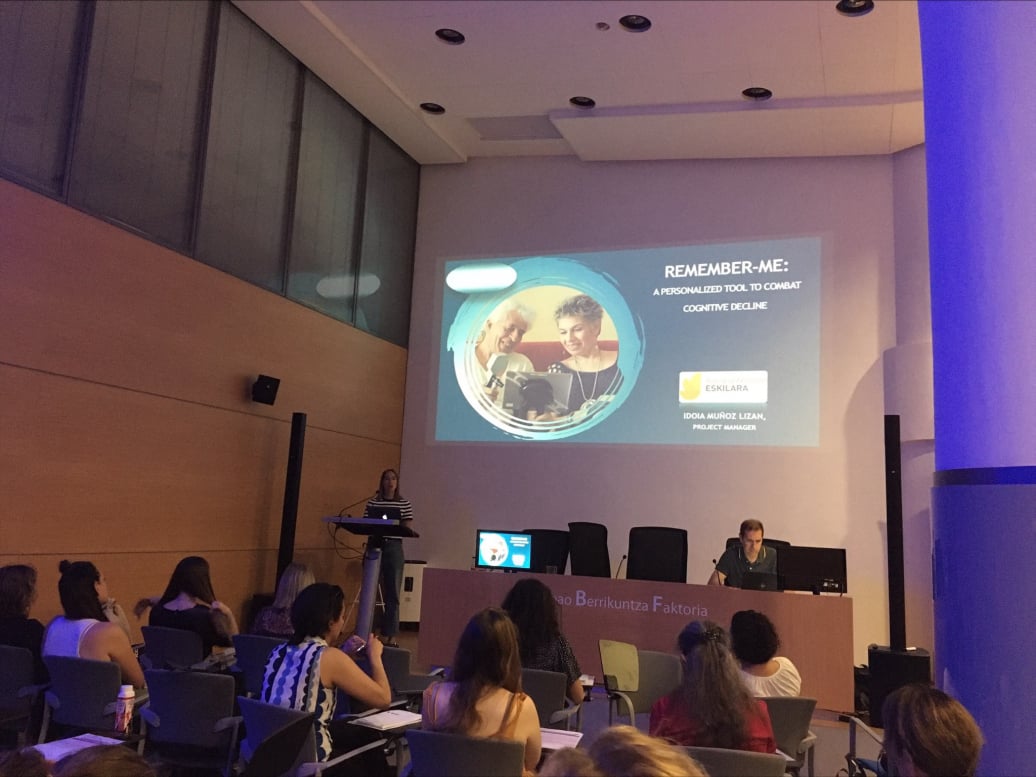
ReMember-Me Project had the opportunity to be introduced during the Basque University Summer School, in which Vitalise H2020 funded project organized its second Summer School and Commercialization Bootcamp.
ReMember-Me Project presented its successful case “scaling up from a R&D project to a real business case” to more than 20 participants from Europe and America, with the aim to:
Understand and co-create the commercialization process of a real-life research result.
Use practical tools to evaluate maturity and current development status of projects, including those supported by Living Labs.
Learn about the basics of investment practices and funding cycles for research and tech-based startups.
Discuss a real-world commercialization process with a Healthcare startup.
https://vitalise-project.eu/vitalise-summer-school-2023-on-living-labs/
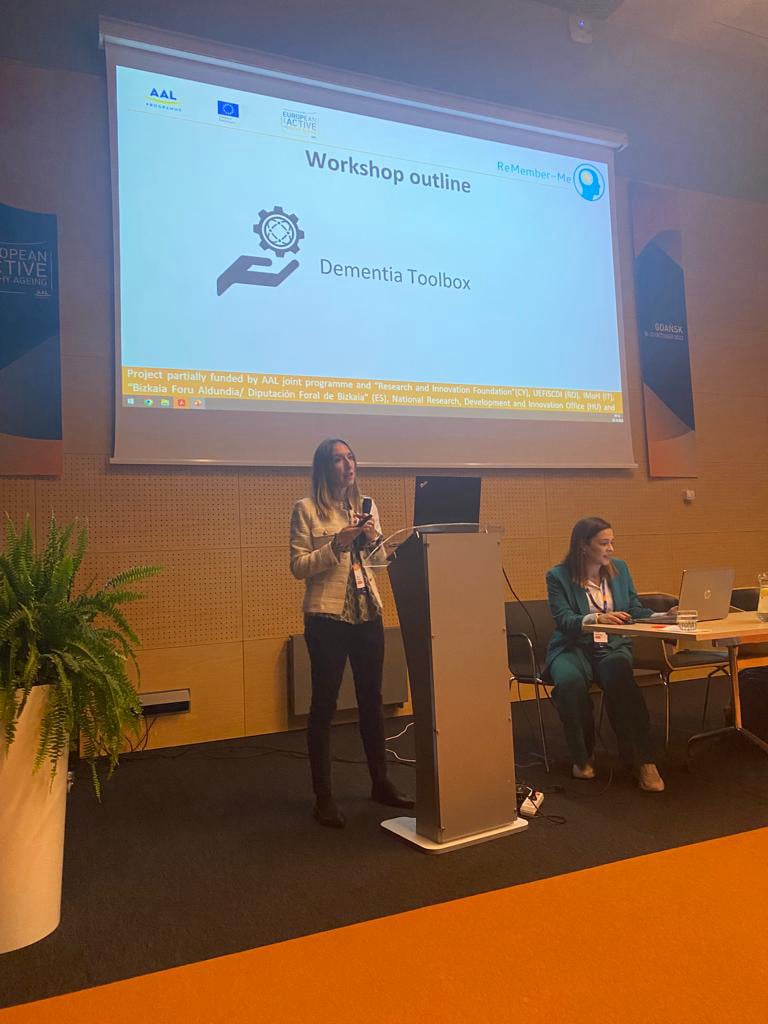
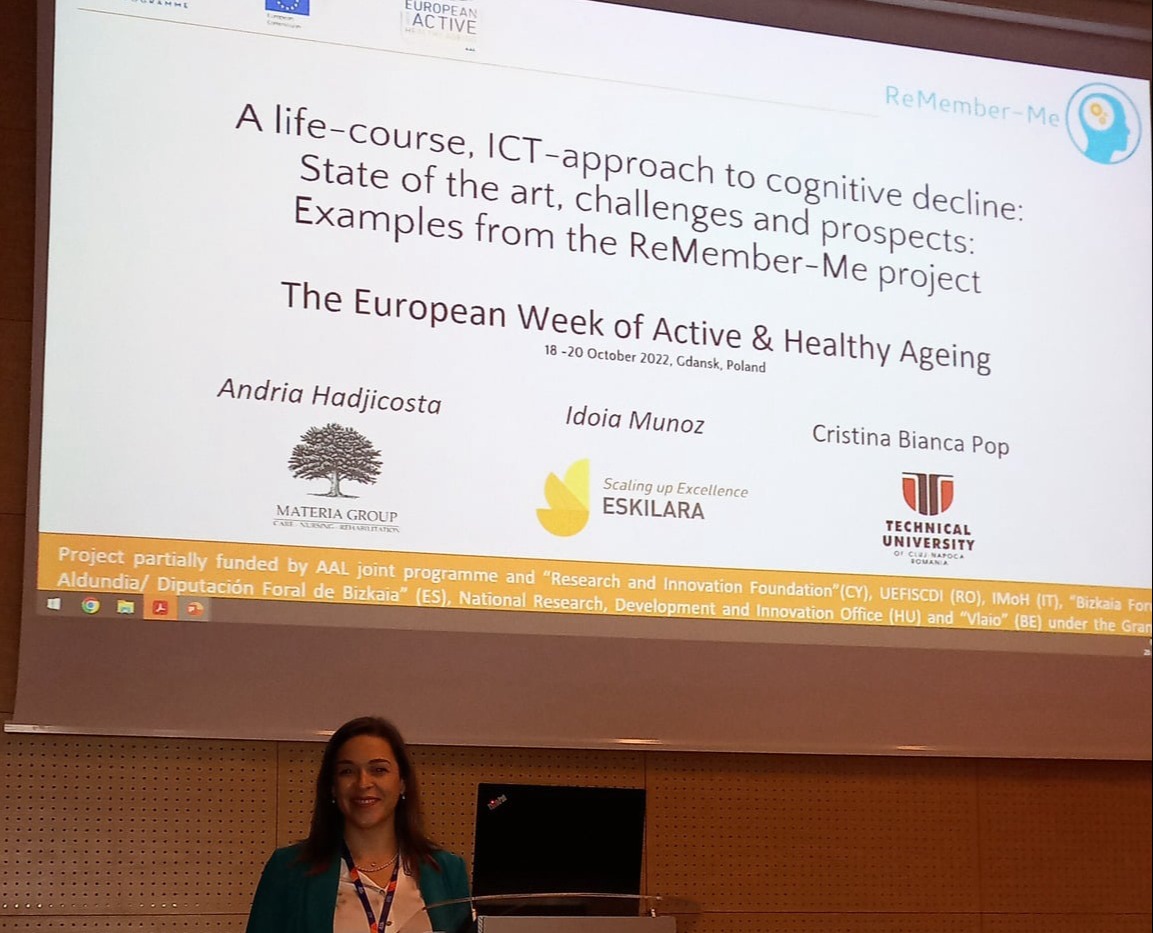
On the 20th of October, 2022, ReMember-Me Project had the opportunity to organize a workshop in the framework of the European Week of Active and Healthy Ageing, EWAHA 2022, celebrated at Gdansk.
The workshop, “a life-course, ICT-approach to cognitive decline: state of the art, challenges and prospects examples from the ReMember-Me project“, counted with the participation of more than 30 professionals and its aim was to present the main challenges of new ICT solutions to combat dementia from the user perspective and implement a highly engaging interactive workshop to collaboratively build a solution-based canvas available to all participants.
https://ageing-well-week.eu/a-life-course-ict-approach-to-cognitive-decline/
The workshop results can be found here
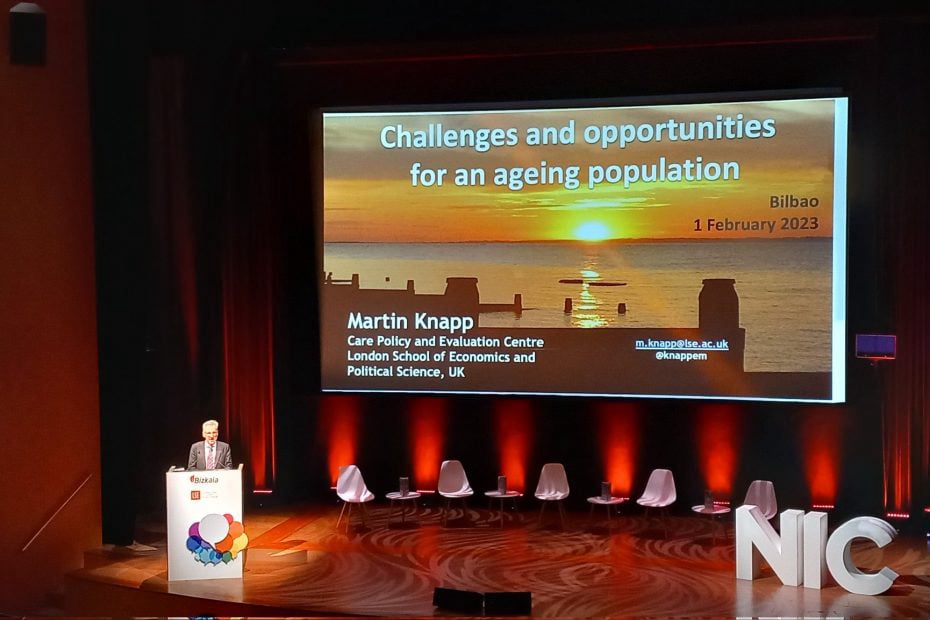
ReMember-Me project had the pleasure to attend the #NIC Topaketa -Longevity Economy and Care Economy organized by Nagusi Intelligence Center (NIC) in collaboration with the Care Policy and Evaluation Centre (CPEC) of the London School of Economics (LSE). An event aimed at professionals from the field of the longevity economy and the care economy.
The NIC is a public-private collaboration space, led by Biscay Provincial Council, that aspires to transform the challenge of population ageing into an opportunity for economic and social development.
The Care Policy and Evaluation Centre (CPEC) is an international research centre that mainly works in the fields of long-term care, mental health, disabilities and other health-related matters. Since 2009 it has carried out more than 130 research projects, amounting to more than 67 million pounds sterling; likewise, the CPEC participates in the development and implementation of key policies and practices.
Longevity is a reality in Biscay region and in all Europe. Aware of the demographic challenge, Biscay is committed to the longevity economy as an opportunity to respond to the needs of older people, in order to encourage economic development and offer long-term care that guarantees a fulfilling life.
Local governments can and must play an important leadership role in this matter, mobilising the public and private sector, the business community, professionals, the world of academia, the voluntary sector and the community, to make longevity a contextual element of a new inclusive prosperity for everyone.
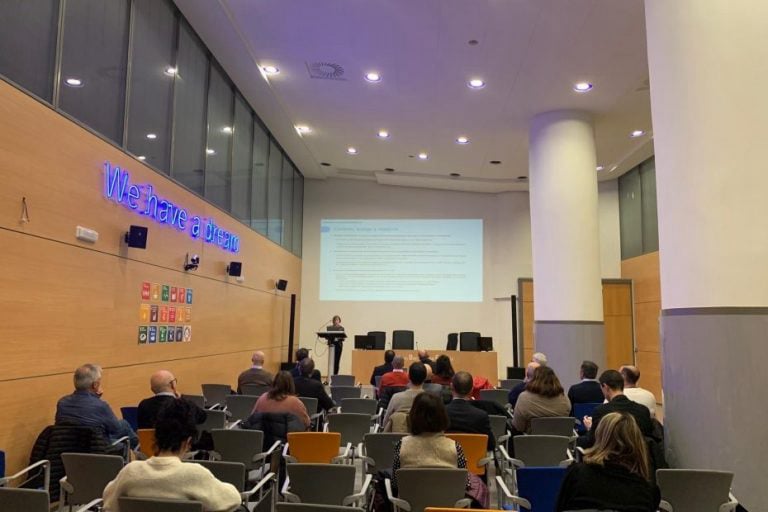
ESKILARA presented ReMember-Me project in the Health Sector Event, organized by Cluster GAIA together with SPRI on January 17th in Bilbao. The event intended to be a node for the maturation of demand and support for SMEs and organizations in Digital Transformation, which over 30 professionals coming from industry,care services, administration and research centers attended.
Its main objective was to promote the Digital Transformation of SMEs, through actions to raise awareness and dissemination and guidance and advice in resolving doubts.
In this sense, together with the Department of Health and Socio-Health Transition of SPRI, a conference was held to address aspects and issues related to the launch of the BioBasque Strategy in 2002 that the Basque Government lead through a collaborative commitment to the development of an economic sector linked to biosciences and health. This commitment sustained over time is currently included, among others, in the 2030 Science, Technology and Innovation Plan (PCTI 2030) and in the Euskadi Next 2021-2026 investment program, which identify the health field and aging as a priority healthy as cross-sectional area. The first challenge identified in the field of health by the PCTI 2030 is the “Growth of the high-tech business fabric, intensive in R+D+i, which competes in the international market and which demands appropriate financial solutions for the sector”. And in this framework, the ReMember-Me Project was presented among other success stories of Digital Transformation in the Health Sector.

With a spirit of innovation, we navigate uncharted territories, exploring new ideas, technologies, and approaches. It is through our willingness to challenge conventions and think beyond boundaries that we discover innovative solutions that propel us forward.
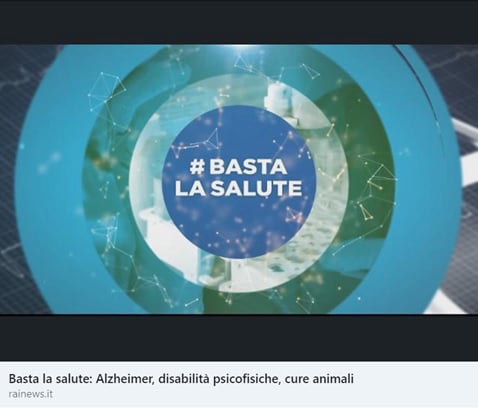

Today is the International day for Older Persons #UNIDOP, and from ReMemberMe AAL Project we work to contribute to #aging active and healthy. Stimulating the brain with specific exercises and training programs designed by neurologists and neuropsychologists serves to combat aging and counteract forms of dementia, such as #Alzheimer, which particularly affect the elderly population.
The research team from the Santa Lucia Center for Cognitive Disorders and Dementias IRCCS, Fondazione Santa Lucia, led by neuropsychiatrist and researcher Gianfranco Spalletta, spoke about it on the Basta La Salute program on Rai News 24 on September 21.
Likewise, the neuropsychologists Federica Piras and Fabrizio Piras reported on the European project ReMemberMe AAL Project, transmitting our objective to support people both in specialized hospitals, such as the IRCCS of Fondazione Santa Lucia, and at home, through technological aids such as #tablets or specialized #robots.
The full video is available at the following link: https://lnkd.in/dEqHAEfS